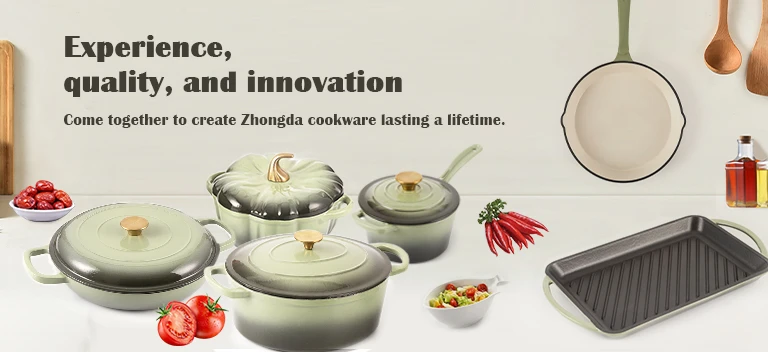
cast iron vs cast aluminum griddle
Cast Iron vs. Cast Aluminum Griddle A Comprehensive Comparison
When it comes to choosing the right griddle for your culinary adventures, two materials often stand out cast iron and cast aluminum. Each of these cooking surfaces has its own unique properties, benefits, and drawbacks. Understanding these differences can guide you in making an informed decision tailored to your cooking style and preferences.
Heat Retention and Distribution
One of the primary considerations when choosing a griddle is its ability to retain and distribute heat. Cast iron is renowned for its excellent heat retention. Once it is heated, it holds the heat remarkably well, allowing for even cooking across its surface. This makes cast iron griddles ideal for searing meats and achieving that perfect, crispy crust.
In contrast, cast aluminum is lighter and tends to heat up faster than cast iron. This quick heating can be beneficial for tasks requiring rapid temperature changes, such as making pancakes or stir-frying vegetables. However, aluminum does not retain heat as well as cast iron. If you’re cooking multiple batches of food, you may find that aluminum requires more frequent adjustments to maintain optimal cooking temperatures.
Weight and Handling
Weight is another significant factor when choosing between these two types of griddles. Cast iron griddles are notoriously heavy, which can be a downside for some users. The weight does lend stability during cooking, but it can make handling, cleaning, and storage more cumbersome.
On the other hand, cast aluminum griddles are significantly lighter, making them easier to lift, maneuver, and handle. For those who frequently move their cookware or have limited storage space, a lightweight cast aluminum griddle can be an attractive option.
Durability and Maintenance
cast iron vs cast aluminum griddle

When it comes to durability, cast iron takes the lead. It can last a lifetime if properly cared for, and many families pass down their cast iron cookware through generations. However, cast iron requires regular seasoning to maintain its non-stick surface and prevent rust. This entails applying oil to the surface and baking it at high temperatures to create a protective layer.
Cast aluminum griddles, while generally more resistant to rust, can be prone to scratching and denting. Some aluminum griddles come with non-stick coatings, which can make cooking and cleaning easier. However, these coatings can wear over time, requiring more care than cast iron in order to extend their lifespan.
Cooking Versatility
Both cast iron and cast aluminum griddles can handle a variety of cooking tasks, but they excel in different areas. Cast iron is versatile and can go from stovetop to oven, making it suitable for recipes like frittatas or roasted vegetables. Additionally, it can withstand high heat, which is perfect for grilling or frying.
Cast aluminum griddles, while also versatile, are often preferred for specific tasks such as breakfast cooking. Their non-stick surfaces make them ideal for pancakes, eggs, and other delicate foods. However, it's essential to remember that excessive heat can damage non-stick surfaces, so maintaining moderate temperatures is crucial.
Price Considerations
Price can also be a determining factor in your selection. Cast iron griddles are often more affordable than their cast aluminum counterparts, particularly when comparing quality. However, premium brands of cast aluminum can offer features and durability that justify a higher price tag.
Conclusion
In the battle of cast iron vs. cast aluminum griddle, the best choice ultimately boils down to your cooking style, preferences, and needs. If you value heat retention, traditional cooking methods, and longevity, a cast iron griddle is an excellent choice. On the other hand, if you prefer a lightweight option that heats quickly and offers ease of use for breakfast foods, a cast aluminum griddle may serve you better. By evaluating the specific features of each material, you can select the griddle that aligns with your culinary goals and enhance your cooking experience.
-
Premium Red Cast Iron Cookware Set Durable & Even Heating Kitchen EssentialNewsApr.29,2025
-
Premium Enameled Bakeware Nonstick, Durable & Versatile DesignsNewsApr.29,2025
-
Heavy-Duty Cast Iron Flat Griddle – Even Heating & Versatile UseNewsApr.28,2025
-
Camp Oven 12 Quart - Durable Cast Iron, Portable Outdoor Cooking SolutionNewsApr.28,2025
-
Durable Cast Iron Stand for Pots Protect Countertops & OrganizeNewsApr.28,2025
-
Double-Sided Cast Iron Grill Pan Dual-Surface Indoor/Outdoor CookwareNewsApr.27,2025


